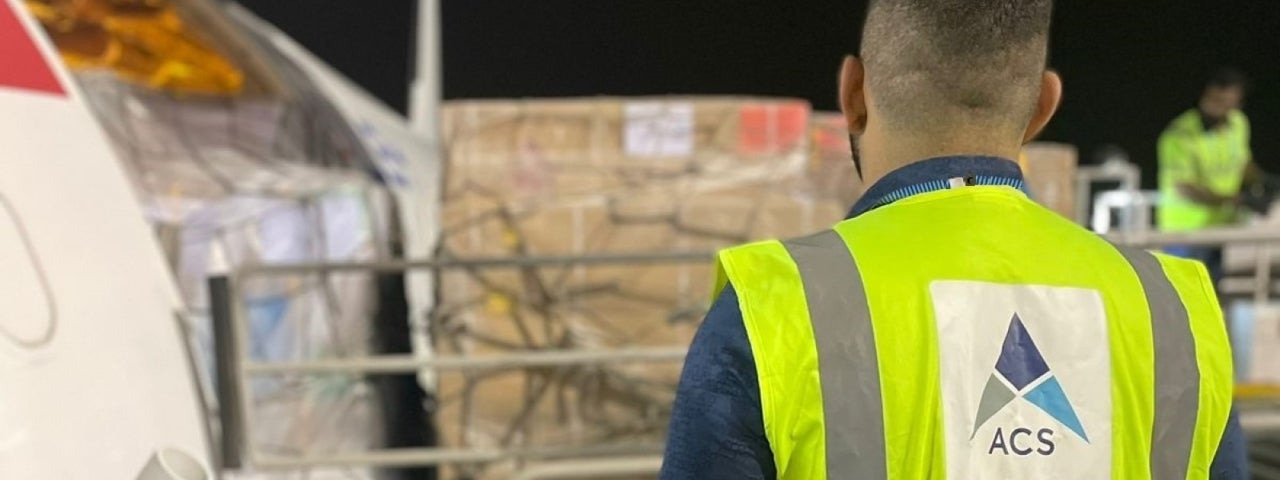Swift support: ACS’s expertise in crisis response and evacuation
Air Charter Service (ACS) has a worldwide reputation for quickly and efficiently delivering humanitarian aid to the places that need it most. In cases of natural disaster and war, delivery of these necessities often present the greatest logistical challenges of all – our specialist expertise and global connections are vital to the smooth-running of these operations.
Where we’ve worked
We have previously worked in humanitarian aid charters across warzones and a range of natural disasters, from conflict zones in Ukraine, and Lebanon, to earthquakes in Turkey, and floods in Spain.
How does the process work?
1. We receive enquiries from a variety of organisations, including agencies, associations, companies, and embassies, but equally receive online enquiries for this type of work;
2. We then check which airports are open, the capability of the aircraft available to us, and that each airport under consideration has the infrastructure available to manage the volume and size of each aircraft and its passengers;
3. We arrange the flights with both carriers and airports and confirm the times for each flight;
4. We begin shuttling people to the nearest open airports (if the nearest airports are accessible by land, and don’t require border crossings);
5. We begin the evacuation.
What we do
Two of our ACS departments usually work concurrently on these projects – Group Charter and Cargo Charter. To make the operation run as smoothly as possible, the group charter aircraft will often perform the function of a cargo aircraft on the inbound flight, bringing supplies to the disaster zone, and then carrying evacuees on the outbound leg.
As is the case with all natural disasters, the unpredictability of the situation is a sincere consideration; our teams both on the ground and overseeing the evacuations have to be prepared to adapt as and when the climate changes.
Our teams often have to think on their feet in the case of developing situations; for example, if a great deal of rainfall occurs in a brief period of time, inflatable boats can be loaded onto the incoming aircraft to aid with evacuations.
Read on to learn about two recent humanitarian aid efforts ACS undertook in collaboration with our partners in aid work
Earthquakes in Turkey
On 6th February 2023, a series of earthquakes with magnitudes up to 7.8 on the Richter scale shook Southern Turkey, close to the Turkey-Syria border. Just over 24 hours after the first seismic event, we were able to get our first representative on the ground at Gaziantep Airport overseeing the arrival of our first flight – a chartered Airbus A330-200 from Germany carrying a search and rescue team.
The UK’s International Search and Rescue Team (UK-ISAR) (with search dogs in tow) arrived later that day on another A330-200 to help in the aftermath of the disaster, also carrying vital cargo in its hold. Over the next couple of weeks, ACS arranged a series of passenger and cargo charters into both Turkey and Syria delivering everything from humanitarian aid to more search and rescue teams from across Europe.
Experience matters:
Our teams quickly ascertained that Gaziantep Airport [GZT (the closest to the epicentre of the earthquakes) was fortunately still functional, however, experience told them that the airport would shortly become very busy with flights carrying search and rescue teams and aid arriving. In response, our offices across Europe and the Middle East were quickly able to secure alternative cargo landing slots at Adana (ADA) and Damascus (DAM), leaving Gaziantep airport freer for passenger aircraft.
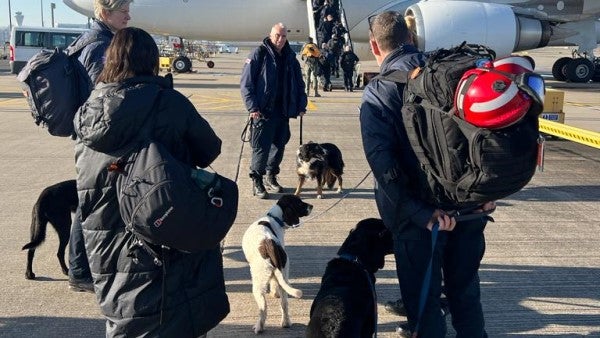
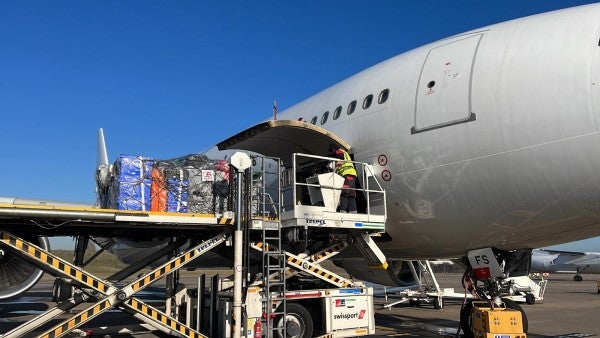
Canadian Wildfires
Forest fires are a continuing problem for many areas of the world; Canada has consistently seen these wild between July and September since 2017. In 2024, across our Group Charter and Cargo divisions, we organised approximately 280 flights related to aiding communities affected by forest fires, with a vast increase in the number of entire communities evacuated.
The alarm is raised by the leaders of Indigenous communities across Canada, working in tandem with the Canadian Forest Service’s monitoring of wildfires; once this happens, the evacuation plans jolt into action. Members of each community are sorted into categories, with the elderly and children taking priority for evacuation. Communities are evacuated in their entirety to safe areas (often large towns and cities) until a time at which it is safe to return back to their homes; we also help with repatriation and the delivery of cargo for the cleanup efforts alongside evacuations.
Experience matters:
Our team are well versed in the limited capacities of the very rural and isolated airports from which we have to coordinate our evacuation efforts. Runways are typically short, and more-often-than-not gravelled, not paved; this in turn restricts payload and has further ramifications in terms of the types of aircraft available to us.
Additionally, most of these airports don’t have terminals, nor air traffic control capabilities, meaning that it is important for us to maintain dialogue with ground teams to let them know in advance of times what to expect, and also Transport Canada, the government organisation in charge of airspaces across the country. By staying communicative and anticipating every eventuality, our office in Toronto ensures that they diligently and sensitively oversee these evacuations.
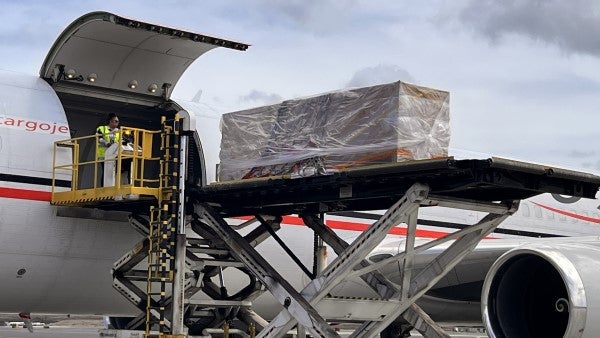

Contact us
With decades of experience in humanitarian charters and a reputation for quickly and efficiently delivering aid to where it's most needed. To discuss your requirements, contact our dedicated team of group charter consultants today.
ACS continues to work closely with governments, NGOs, and aid agencies to help manage ongoing natural disasters around the globe. Alongside the aid provided by aid organisations, ACS fundraises separately to donate aid to these rescue missions; recent donations have included clothes and electricity generators.
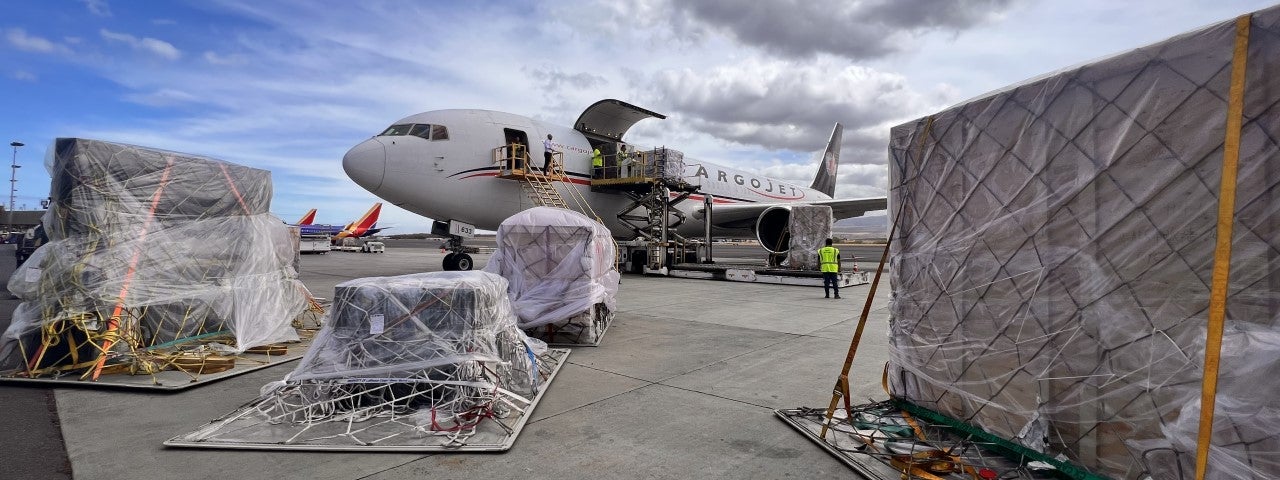
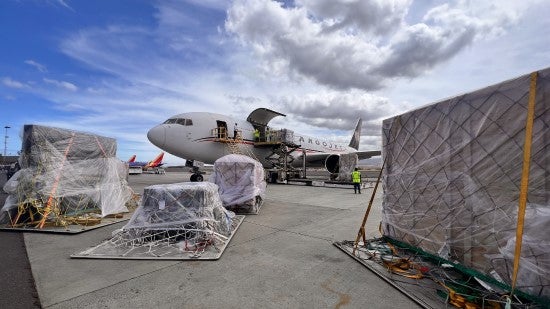 Air Charter Service (ACS) has a worldwide reputation for quickly and efficiently delivering humanitarian aid to the places that need it most. In cases of natural disaster and war, delivery of these necessities often present the greatest logistical challenges of all – our specialist expertise and global connections are vital to the smooth-running of these operations.
Air Charter Service (ACS) has a worldwide reputation for quickly and efficiently delivering humanitarian aid to the places that need it most. In cases of natural disaster and war, delivery of these necessities often present the greatest logistical challenges of all – our specialist expertise and global connections are vital to the smooth-running of these operations.



